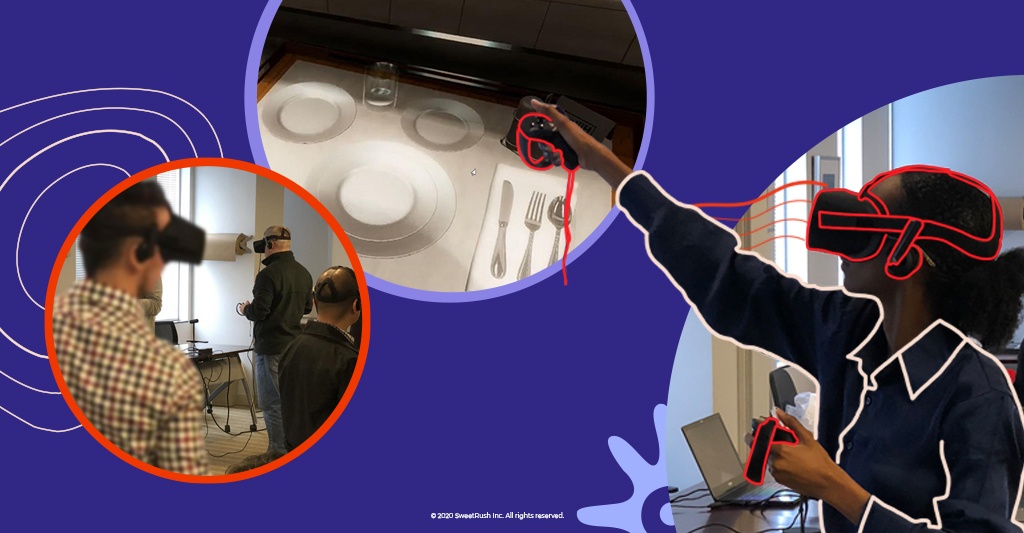Why You Need To Use Scenario-Based Learning For Sales Training
Kevin is the sales training manager of a large pharmaceutical company. Recently, the company hired 100 medical reps, fresh out of university. Kevin was assigned the task of training these new sales staff on holding effective sales conversations.
Gary is a Learning and Development executive with a large automobile company, in-charge of training sales managers. Recently, 40 senior sales reps were promoted as area sales managers, and Gary was asked to impart decision-making skills to these employees.
Clara is the product sales training manager of a global insurance services provider. A few days ago, the company launched a new annuity policy. Clara’s boss asked her to ensure that the company’s reps are trained to handle customer objections effectively.
How can sales training managers –Kevin, Gary, and Clara– ensure their sales staff are trained well on dealing with customers effectively, despite the limitations of strict targets and being away from their desks for long?
Dealing with customers –negotiating, convincing them, and addressing their concerns– requires people-skills. Mastering them requires frequent interactions with people. But imagine what would happen if a rep without adequate skills interacts with a customer. You will be left with a fuming customer or a lost account at the maximum.
So, how can eLearning help in this context? This is where scenario-based learning makes a difference – the difference between dissatisfied customers & dropping sales and happy customers & sales targets in the green!
What Is Scenario-Based Learning?
Scenario-based learning is a way of teaching or helping practice a skill using virtual, interactive, problem-based contexts. This Instructional Design strategy usually involves learners working their way through a problem. In the process, they must apply their prior experience, subject knowledge, critical thinking, and problem solving skills in a risk-free and “close-to real-world” environment. This allows them to acquire the necessary skills needed to deal with similar problems at work.
How Do Scenarios Help Impart Good Sales Training?
1. Explain The Context In Which The Product Will Be Used
Scenarios are ideal for explaining how your product will be used by prospective customers. They help depict the context(s) in which the product will be used. This goes a long way in helping your sales reps understand how the product solves the problems of prospects, and armed with this information, the salespersons can pitch the product effectively.
One of our clients, a laboratory equipment manufacturer, has developed scenario-based online courses to educate its sales staff on the context in which its product will be used, and the initiative was a resounding success.
2. Improve The Abilities Of Salespersons To Hold Good Customer Conversations
You can use branching scenarios to help your salespeople engage in fruitful discussions. A branching scenario is an interactive learning element that presents the learner a problem, which can be tackled in multiple ways, and challenges him to choose one of the ways to deal with the problem. As the learner makes a decision, a new challenge is presented to him, and based on how he reacts to the challenge, further challenges are presented.
One of our customers, a BFSI company, uses branching scenarios with a high degree of efficacy for training its sales force on holding customer conversations. Based on the sales rep’s reply to a customer query, a new question is asked, and the answer to this question determines the third question to be posed, and so on. This helps salespeople understand the consequences of their responses to customers’ questions.
3. Help Sales Reps Deal With Customer Objections Confidently
We all know that salespeople who tackle customer objections effectively succeed in closing deals. eLearning courses, containing scenarios are very useful to help sales staff handle customer objections deftly, in a confident manner.
For instance, consider a scenario to help pharmaceutical sales representatives. These people have to deal with doctors to sell their products. So, a scenario is created where the doctor asks various questions about the product and the sales representative answers them effectively and convinces the doctor to prescribe his product.
Let us now look at a couple of examples where scenarios have been used for training salespeople.
2 Good Examples Of Scenario-Based Online Sales Training Courses
1. Enhancing Selling Skills
Many a time, salespeople face difficulties in convincing prospects to buy their products and proper guidance from senior reps proves helpful. Here is a scenario-based online sales training course where a junior sales rep, who is unsuccessful at closing a deal, receives advice from an experienced salesman on the steps to be followed to sell successfully.
2. Handling Customers Effectively
Usually sales reps fear taking wrong decisions while dealing with clients, which might lower their confidence. To help them practice and boost their confidence, you can create scenarios. Here is an example of a scenario-based eLearning course, where a learner is taught to take the right decisions, leading to a successful sale.
Proper training helps equip your salespeople with the knowledge and skills needed to close deals successfully. Unleash the power of scenario-based online courses to impart the winning training to your sales staff.








